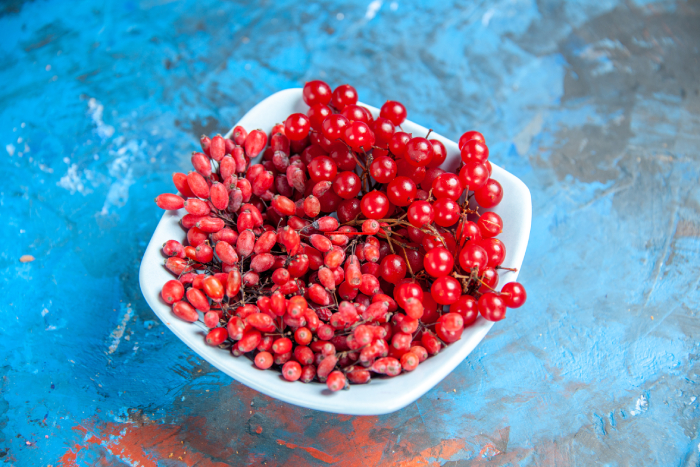Hey wellness warriors! 🌟 Are you ready to embark on a journey to explore one of the most misunderstood yet captivating supplements in the health domain? Today, we are going to disclose all the secrets regarding the bioavailability of taurine ingestion. Believe me, there is far more to this amino acid than the fallacies you might have encountered in those energy drink tales.
Understanding Taurine: Debunking the Energy Drink Myths
Let’s commence by shattering some prevalent misconceptions. First and foremost, is taurine bull sperm? Absolutely not! This is undoubtedly the most preposterous myth in the history of supplements. Regardless of what you might have come across on TikTok or other sources, taurine has no connection whatsoever with bull sperm or semen. In fact, taurine is indeed a sulfur amino acid. It is endogenously produced within our bodies and plays an essential role in a wide array of physiological functions, ranging from optimizing brain function to safeguarding heart health. It is involved in neurotransmitter regulation in the brain, which is crucial for cognitive processes such as memory, concentration, and mood stability. In the heart, it helps maintain proper cardiac rhythm and supports the overall cardiovascular system’s integrity.
The Science Behind Bioavailability of Taurine Ingestion
When we talk about the bioavailability of taurine ingestion, we are delving into a realm of highly intriguing science. Picture your digestive system as an ultra-exclusive nightclub. Taurine is like a guest attempting to pass through the velvet rope (your intestinal wall) to gain access to the party (your bloodstream). The bioavailability of taurine ingestion essentially determines the number of VIP passes your body is willing to issue.
Recent research has revolutionized our comprehension of how the bioavailability of taurine ingestion operates. Scientists have unearthed that our bodies employ specific transport proteins, which can be likened to diminutive Uber drivers. These proteins are responsible for ferrying taurine from the digestive tract into the bloodstream. They are highly efficient under normal circumstances. However, if an excessive amount of taurine is consumed all at once, they can become overloaded, similar to a situation where too many people try to squeeze through a narrow doorway simultaneously.
Factors Affecting Absorption
The bioavailability of taurine ingestion is a complex matter that is influenced by multiple factors:
- Temperature: Analogous to dissolving sugar in tea, warmer temperatures can augment the bioavailability of taurine ingestion by up to 15%. Room temperature water is generally more conducive to absorption than ice-cold beverages. This is because the kinetic energy of molecules at a warmer temperature promotes better dissolution and interaction of taurine with the absorptive surfaces in the digestive tract. Warmer water can also enhance the activity of digestive enzymes, which may indirectly facilitate taurine absorption.
- Timing: Taking taurine on an empty stomach can boost the bioavailability of taurine ingestion by as much as 23%. It can be compared to traveling on a clear, uncongested highway versus navigating through rush hour traffic. When the stomach is empty, there is minimal interference from other food substances, allowing taurine to interact more readily with the intestinal transport proteins and enter the bloodstream. However, for individuals with sensitive stomachs, consuming a small, light meal along with taurine may be a more suitable option. Although the increase in bioavailability might not be as significant as when taken on an empty stomach, it still ensures a reasonable level of absorption while minimizing discomfort.
- Form: The physical form of taurine has a notable impact on its absorption. Taurine powder typically exhibits superior bioavailability of taurine ingestion compared to capsules or tablets. Since it is already in a finely divided and soluble state, it can dissolve promptly in the digestive juices. This enables it to be more accessible for absorption by the intestinal cells through specific transport mechanisms. Nevertheless, factors such as storage conditions and mixing methods can influence its potency. For instance, if taurine powder is stored in a warm and humid environment, it may absorb moisture, leading to clumping and potential degradation. This can reduce its solubility and, consequently, its bioavailability. Capsules and tablets, on the other hand, offer convenience in terms of dosing and portability. However, the body needs to first break down the outer casing before the taurine can be released and absorbed. This additional step may sometimes result in a less efficient absorption process.
Natural Sources and Their Impact on Bioavailability
Understanding foods rich in taurine is not merely about identifying what to eat but also about maximizing the bioavailability of taurine ingestion from these sources. Let’s dissect some fascinating research on how different food preparations affect taurine absorption:
- Raw vs. Cooked:
Surprisingly, the bioavailability of taurine ingestion from raw fish can be up to 25% higher than that from cooked fish. This is because cooking processes, such as heat exposure, can cause some degree of denaturation or alteration in the chemical structure of taurine, thereby reducing its absorbability. However, it is essential to prioritize food safety. Raw fish may carry the risk of parasitic infections or foodborne illnesses, so proper handling and sourcing are of utmost importance. - Marine Sources:
Seafood reigns supreme when it comes to foods with the highest taurine content. There is a sound reason for the exceptional bioavailability of taurine ingestion from these sources. Marine animals have evolved unique physiological mechanisms to maintain high taurine levels despite inhabiting a saline environment. Their meat is rich in forms of taurine that are readily absorbable by our bodies. For example, shellfish like oysters and mussels are not only delicious but also excellent sources of bioavailable taurine. They contain specific proteins and lipids that may enhance the absorption and utilization of taurine in our digestive systems.

Special Applications: From Pets to Performance Enhancement
Now, let’s explore some specific applications that might astonish you. Did you know that the use of taurine in neurological disorders is yielding promising results? Taurine has been shown to have neuroprotective properties, potentially reducing oxidative stress and inflammation in the nervous system. It may also play a role in modulating neuronal excitability, which could be beneficial in conditions such as epilepsy or neurodegenerative diseases.
When it comes to our furry companions, taurine is of utmost significance. For cats, it is an absolute necessity as they lack the ability to synthesize this amino acid on their own. Taurine deficiency in cats can lead to severe health issues, including heart problems, vision impairment, and reproductive disorders. Similarly, taurine for dogs is vital for their heart health and vision. It helps maintain the proper function of the heart muscle, ensuring efficient pumping and circulation. In terms of vision, it is involved in the development and maintenance of the retina. Understanding the presence of taurine in dog food and determining the appropriate daily taurine dosage for dogs based on their size, age, and breed is crucial for ensuring their well-being.
In the realm of human performance, taurine has diverse applications. In sports performance, it aids in improving muscle recovery and endurance. By enhancing the bioavailability of nutrients to muscle cells during and after exercise, it helps replenish energy stores more efficiently and reduces muscle fatigue. Recent studies have also uncovered exciting benefits of taurine in sexual health. It is involved in regulating blood flow in the genital area. When absorbed optimally, it can enhance blood vessel dilation, leading to improved erectile function in men and enhanced sensitivity and lubrication in women. Moreover, taurine’s interaction with the endocrine system allows it to regulate hormones such as testosterone and estrogen, which are essential for sexual health and overall well-being.
Maximizing the Bioavailability of Taurine Ingestion
To optimize the bioavailability of taurine ingestion and achieve the best supplementation outcomes, several key strategies can be implemented:
- Proper Timing of Intake:
Taking taurine on an empty stomach, preferably in the morning, maximizes the bioavailability of taurine ingestion. This is because the stomach is relatively empty, minimizing competition from other food components for absorption. The intestinal transport proteins can interact more effectively with taurine, facilitating its entry into the bloodstream. Research has demonstrated that this approach can increase bioavailability by up to 23% compared to taking taurine with a meal. However, for those with a sensitive stomach, a small amount of easily digestible food, such as a piece of fruit or a slice of whole-grain bread, can be consumed along with taurine. This will help reduce any potential discomfort while still maintaining a reasonable level of absorption. - Adequate Hydration:
Staying well-hydrated throughout the day is vital for the bioavailability of taurine ingestion. Water serves multiple functions in this regard. It helps taurine dissolve in the digestive juices, ensuring its proper dispersion and interaction with the absorptive surfaces. Additionally, it maintains the integrity and function of the intestinal cells involved in absorption. Dehydration can lead to a thickening of the digestive juices, making it more difficult for taurine to dissolve and be absorbed. It can also affect the motility of the digestive tract, potentially slowing down the absorption process. Therefore, it is recommended to drink an adequate amount of water, preferably at least 8 glasses per day, to support optimal taurine absorption. - Considering Individual Factors:
Personal factors such as age, health status, and underlying medical conditions have a significant impact on the bioavailability of taurine ingestion. As we age, the efficiency of our digestive system and nutrient absorption tends to decline. The activity of the transport proteins responsible for taurine uptake may decrease, and the integrity of the intestinal lining may be compromised. Therefore, older individuals may need to pay closer attention to the form and timing of taurine supplementation. They may also require a more individualized approach, perhaps with the guidance of a healthcare professional. People with gastrointestinal disorders, such as irritable bowel syndrome or inflammatory bowel disease, may experience impaired taurine absorption due to alterations in the structure and function of the digestive tract. In such cases, it is essential to consult a doctor or a registered dietitian to determine the most appropriate supplementation plan. Pregnancy and breastfeeding also affect the body’s handling of taurine. During pregnancy, the demand for taurine increases to support the growth and development of the fetus, especially in relation to brain and eye development. Breastfeeding mothers also require an adequate supply of taurine to ensure its transfer to the infant through breast milk. Therefore, special consideration should be given to taurine intake during these periods. - Proper Storage of Supplements:
The proper storage of taurine supplements is often overlooked but is crucial for maintaining their potency and the bioavailability of taurine ingestion. Taurine powder is particularly sensitive to environmental factors such as heat, moisture, and sunlight. Exposure to high temperatures can cause the powder to degrade, altering its chemical structure and reducing its bioavailability. Moisture can lead to clumping and spoilage, making it less soluble and absorbable. Sunlight may also have a detrimental effect on its stability. Therefore, taurine powder should be stored in a cool, dry place, preferably in an airtight container, away from direct sunlight. Some supplements may even require refrigeration to maintain their optimal quality and bioavailability. It is essential to follow the manufacturer’s storage instructions carefully to ensure that the supplement retains its effectiveness.
Future Research and Developments
The field of taurine research is in a constant state of evolution. Scientists are actively exploring various avenues to enhance the bioavailability of taurine ingestion. One area of focus is the development of novel formulations. For example, the use of nanotechnology to encapsulate taurine is being investigated. These nanoscale carriers can protect taurine from degradation in the digestive tract and target specific cells or tissues, increasing its bioavailability and therapeutic efficacy. By precisely controlling the size, surface charge, and composition of the nanoparticles, researchers aim to optimize their interaction with the body’s cells and improve the delivery of taurine to where it is needed most.
Another aspect under study is the combination of taurine with other substances to create synergistic effects that enhance absorption. For instance, pairing taurine with certain lipids or natural emulsifiers may improve its solubility and stability in the digestive system, facilitating its uptake by the intestinal cells. Additionally, the interaction of taurine with other nutrients, such as vitamins and minerals, is being explored. Some combinations may enhance the body’s ability to absorb and utilize taurine more effectively, opening up new possibilities for personalized supplementation strategies.
Genetic factors influencing taurine bioavailability are also a subject of intense research. Different individuals may possess genetic variations in the genes encoding the transport proteins or enzymes involved in taurine metabolism. Understanding these genetic differences could enable the development of personalized supplementation regimens tailored to an individual’s specific genetic makeup. This would involve genetic testing to identify relevant polymorphisms and then adjusting the dose and form of taurine supplementation accordingly to optimize bioavailability and achieve the desired health benefits.
Moreover, research is expanding into new clinical applications of taurine based on improved bioavailability. In neurodegenerative diseases like Alzheimer’s and Parkinson’s, scientists are investigating whether enhanced taurine bioavailability can slow down disease progression or improve symptoms. In metabolic disorders such as diabetes, the role of taurine in regulating glucose metabolism and insulin sensitivity is being explored. The goal is to develop novel therapies that can potentially improve the quality of life for patients suffering from these conditions.

Conclusion: Making Informed Choices
Comprehending the bioavailability of taurine ingestion empowers you to make more intelligent and informed decisions regarding supplementation. Whether you are an athlete striving for peak performance, a pet owner dedicated to the well-being of your furry friends, or a health enthusiast seeking to optimize your overall health, understanding how to optimize taurine absorption can have a profound impact on your outcomes.
It is important to note that while the bioavailability of taurine ingestion is a critical factor, individual responses can vary. Each person’s body is unique, and factors such as genetics, lifestyle, and concurrent medications can influence how taurine is absorbed and utilized. Therefore, it is advisable to listen to your body’s signals. Start with the recommended doses and gradually adjust based on your personal needs and goals. If you experience any unusual symptoms or have concerns, it is always wise to consult a healthcare professional.
Are you ready to take charge of your taurine intake and optimize your health? Share your experiences or questions in the comments section below. And don’t forget to subscribe for more evidence-based supplement advice and stay updated on the latest research findings. Let’s work together to achieve our wellness goals and lead a healthier, more vibrant life! 💪✨
Additional Resources
For those eager to delve deeper into understanding the bioavailability of taurine ingestion, we recommend exploring the linked research studies. These studies provide in-depth insights into the scientific aspects and clinical applications of taurine. Additionally, consulting with healthcare providers, such as doctors, registered dietitians, or pharmacists, can offer personalized advice based on your specific health circumstances. They can help you navigate the complex world of taurine supplementation, ensuring that you make choices that are safe and beneficial for you. Stay informed, stay healthy, and keep making strides towards your wellness aspirations! 🌟



